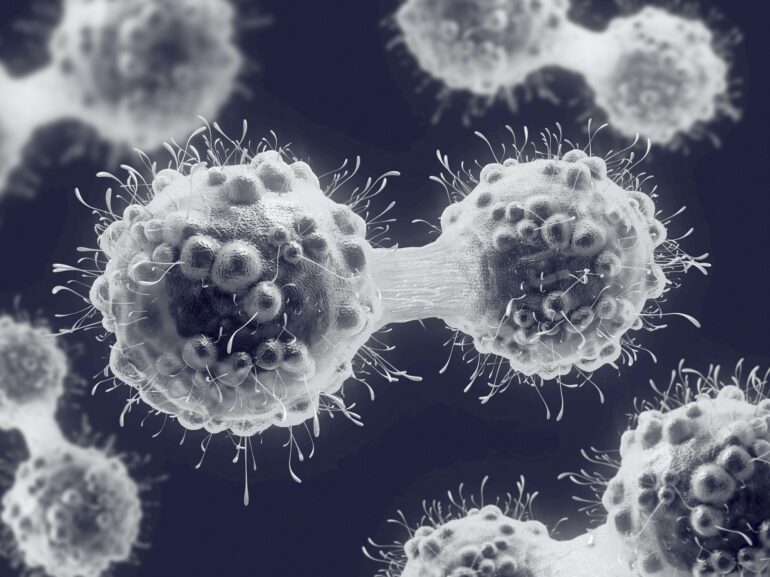Cancer was the second leading cause of death in the U.S. in 2020. Although billions of dollars have been poured into cancer research, the results are still disappointing for many patients who pay hundreds of thousands of dollars to extend their lives for just a few more months. But why do cancer therapies fail?
I’m a doctoral student at the Moffitt Cancer Center and the University of South Florida who develops and applies mathematical and evolutionary theories to understand how cancer works and how to best treat it. And I believe that approaching cancer treatment through the lens of ecology and evolution may help doctors and researchers grapple with this question and fight more effectively against cancer.
Cancer can be seen as being in a predator-prey relationship with the immune system of the body, where cancer is the prey and the immune system is the predator.
Standard treatment protocols
For decades, standard treatment for cancer involved bombarding patients with the maximum tolerable dose of a drug, attempting to kill as many cancer cells as possible while minimizing adverse side effects.
However, the cancer cells that make up a tumor are not all the same. By random chance, some of these cells develop mutations, or alterations in the cell’s genetic material, that make them immune to a drug. These cells can then proliferate and repopulate the tumor, leading to therapeutic resistance that renders the drug ineffective.
When this occurs, physicians typically switch to another drug that targets a different aspect of the cancer cells. This continues until a therapy is able to effectively control the cancer or no more drugs are available, at which point patients are provided hospice care to make their last days as comfortable as possible.

Typical cancer treatment protocols are reactive, switching therapies after tumors become resistant to the current drug.
Justin Paget/Stone via Getty Images
This protocol has led to the development of a plethora of drugs that target specific features of the tumor’s biology, from boosting the body’s natural defense system to blocking chemical signals on the cancer cells to prevent them from growing. Though some of these drugs have proved to be incredibly effective in a subset of patients, this approach does not work for everyone.
The role of evolutionary game theory
To improve long-term outcomes for all patients, cancer researchers ask two critical questions: How do tumors grow, and how do they become resistant? Looking at cancer through the lens of ecology and evolution, or how the environment of the body molds and is molded by evolving cancer cells over time, can help answer these questions.
One way to think through this is with evolutionary game theory, which uses rigorous mathematics to try to predict how something will react to changes in its environment in a way that…



